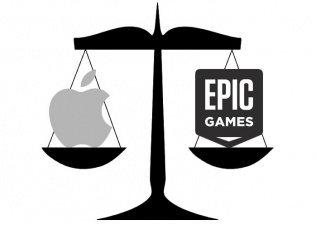As the Apple vs. Epic lawsuit battle continues, attorneys-general for 34 states in the US yesterday argued that Apple stifles competition on the App Store.
This claim comes as part of an appeal against a district judge’s ruling in California on Apple’s market dominance, where it had been decided that certain restrictive practices are permissible and are not in violation of US antitrust law.
The support from the judge, largely ruling against Epic in September 2021, included the permissibility of Apple’s commission charge of up to 30 per cent for developers’ use of in-app payment systems.
The comments raised in support of Epic were led by Utah with backing from Texas, Indiana, and others.
The collective states commented, “Apple continues to monopolise app distribution and in-app payment solutions for iPhones, stifle competition, and amass supracompetitive profits within the almost trillion-dollar-a-year smartphone industry.”
During the original ruling, the only result in Epic’s favour was that Apple was ordered to remove anti-steering app policies and implement changes by December 9 2021, but a last-minute ruling within the final 12 hours allowed Apple to postpone this.
Weighing up
The states in the current appeal have argued that the benefits and flaws of Apple’s App Store rules were not sufficiently weighed up by the lower court. Furthermore, they suggest that Apple making developers sign non-negotiable contracts should be reflected upon and that the original ruling was not consistent with antitrust law.
“Paradoxically, firms with enough market power to unilaterally impose contracts would be protected from antitrust scrutiny — precisely the firms whose activities give the most cause for antitrust concern,” the states added.
A spokesperson for Apple has commented, “We’re optimistic that the ruling will be affirmed on appeal, and that Epic’s challenge will fail.”
Whilst Epic’s claim about the App Store being run like a monopoly was rejected during the earlier trial, federal and state agencies are investigating Apple’s potential monopolisation enforcement.
While attorneys-general have previously filed antitrust lawsuits against Meta, Google, and other big tech companies, this marks the first time Apple has been targetted.
Recently, in South Korea, Apple was required to submit plans to comply with legislation and allow third-party payment systems on the App Store.

